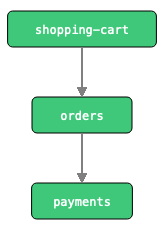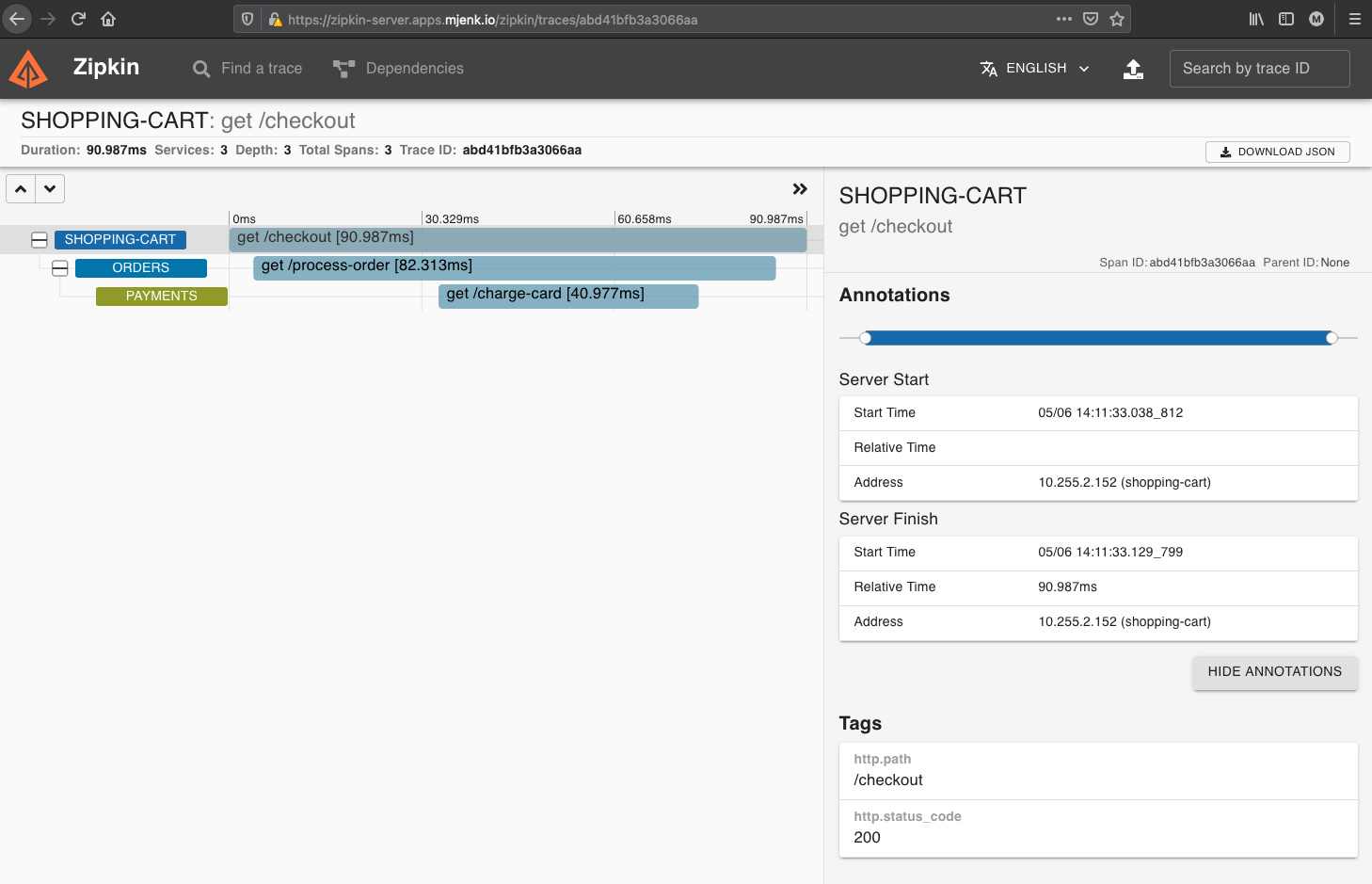This repository contains three applications built using express and nodeJS:
These apps use Zipkin to trace the calls between them.
The following instrumentation frameworks are leveraged in the apps:
The traces can then be viewed using cf logs <app_name> or using tools such as VMWare Tanzu AppMetrics, Zipkin Server, and Splunk.
To demo this application, a Zipkin Server is required and must be running to forward spans traced by the apps
The following link contains the steps necessary to download the Zipkin Server JAR: https://github.com/openzipkin/zipkin#quick-start
First, download the JAR using the quick-start guide (NOTE: You can also view the releases here at this link:
curl -sSL https://zipkin.io/quickstart.sh | bash -s
Next, push the JAR to PCF to deploy the zipkin-server:
cf push zipkin-server -p zipkin.jar
Validate that the zipkin server was deployed successfully:
cf app zipkin-server
Showing health and status for app zipkin-server in org dev / space dev as admin...
name: zipkin-server
requested state: started
routes: zipkin-server.apps.mjenk.io
last uploaded: Wed 05 May 10:16:21 CDT 2021
stack: cflinuxfs3
buildpacks:
name version detect output buildpack name
java_buildpack_offline v4.36-offline-https://github.com/cloudfoundry/java-buildpack.git#ebf9f057 java java
type: web
sidecars:
instances: 1/1
memory usage: 1024M
state since cpu memory disk details
#0 running 2021-05-05T15:17:08Z 0.2% 312.7M of 1G 172.2M of 1G
Once the zipkin-server has been successfully deployed, proceed to the next section.
Prior to deploying the sample apps, first UPDATE the deployment manifest.yml and REPLACE the following with your environment's specific configuration for the following values:
...
env:
ZIPKIN_SERVER_HOST: <zipkin-server-url>
PAYMENTS_HOST: <payments-app-url>
ORDERS_HOST: <orders-app-url>You may also update other values within the deployment manifest as needed
To deploy, you must login as a user that has the ability to assign space permissions and make spaces. It will create a given shopping-cart, orders, and payments app that can be used to preview an example trace.
To deploy, run:
cf push
The following diagram depicts call flow for this application
In your browser, navigate to /checkout or curl the /checkout endpoint for the given Shopping Cart app.
You should receive a 200 OK message that says card successfully charged!
After hitting the /checkout endpoint, navigate to the zipkin-server UI using the Route that was created when you pushed the zipkin-server app
Below depicts an example of the shopping-cart trace in the Zipkin Server UI:
To cleanup, run:
cf delete payments -f -r
cf delete orders -f -r
cf delete shopping-cart -f -r

